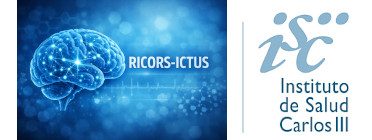Publicaciones: agosto 2022
The Boston criteria version 2.0 for cerebral amyloid angiopathy: a multicentre, retrospective, MRI-neuropathology diagnostic accuracy study
A first update on mapping the human genetic architecture of COVID-19
Interventions within the Scope of Occupational Therapy in the Hospital Discharge Process Post-Stroke: A Systematic Review
García-Pérez P, Lara JP, Rodríguez-Martínez MDC, de la Cruz-Cosme C. Healthcare (Basel). 2022 Aug 29;10(9):1645. doi: 10.3390/healthcare10091645. PMID: 36141257
Efficacy of SARS-CoV-2 vaccination in patients with monoclonal gammopathies: A cross sectional study
Life Sci Alliance. 2022 Aug 12;5(12):e202201479. doi: 10.26508/lsa.202201479. Print 2022 Dec. PMID: 35961779
Optimizing the Definition of Ischemic Core in CT Perfusion: Influence of Infarct Growth and Tissue-Specific Thresholds
AJNR Am J Neuroradiol. 2022 Aug 18;43(9):1265-70. doi: 10.3174/ajnr.A7601. Online ahead of print.PMID: 35981763
Adjunct Thrombolysis Enhances Brain Reperfusion following Successful Thrombectomy
Ann Neurol. 2022 Aug 7. doi: 10.1002/ana.26474. Online ahead of print. PMID: 36054449
Determinants and Trends of the Use of Intravenous Thrombolysis for Minor Stroke: A Population-Based Study, 2016 to 2020
Stroke. 2022 Aug 10:101161STROKEAHA122038996. doi: 10.1161/STROKEAHA.122.038996. Online ahead of print.PMID: 35946402
Automated scoring of collaterals, blood pressure, and clinical outcome after endovascular treatment in patients with acute ischemic stroke and large-vessel occlusion
Front Neurol. 2022 Aug 9;13:944779. doi: 10.3389/fneur.2022.944779. PMID: 36016546
Conclusion: In acute ischemic stroke patients with anterior large vessel occlusion treated with endovascular treatment, admission systolic blood pressure was inversely associated with the automated scoring of CS on baseline CT angiography. Moreover, a good CS was associated with a favorable outcome.
This work was supported by Redes de Investigación Con Objetivos de Resultados en Salud (RICORS) RD21/0006/0006, Instituto de Salud Carlos III, Ministry of Science and Innovation Government of Spain). DG-A (CM18/00065) and MG-J (CM20/00056) received a Río Hortega Research grant from the Instituto de Salud Carlos III, Ministry of Science and Innovation (Government of Spain). Collateral Circulation (collaterome) in Acute Ischemic Stroke with Large Vessel Occlusion: A Study of Clinical, Radiological, Plasma and Genetic Factors, Proyecto de investigación en salut (PI19/00859), Instituto de Salud Carlos III, Ministry of Science and Innovation (Government of Spain). This study has been co-funded by the European Union through the Fondo Europeo de Desarrollo Regional (FEDER).
Need for a Paradigm Shift in the Treatment of Ischemic Stroke: The Blood-Brain Barrier
Int J Mol Sci. 2022 Aug 22;23(16):9486. doi: 10.3390/ijms23169486. PMID: 36012745
Abstract: Blood-brain barrier (BBB) integrity is essential to maintaining brain health. Aging-related alterations could lead to chronic progressive leakiness of the BBB, which is directly correlated with cerebrovascular diseases. Indeed, the BBB breakdown during acute ischemic stroke is critical. Itremains unclear, however, whether BBB dysfunction is one of the first events that leads to brain disease or a down-stream consequence. This review will focus on the BBB dysfunction associated with cerebrovascular disease. An added difficulty is its association with the deleterious or reparative effect, which depends on the stroke phase. We will first outline the BBB structure and function. Then, we will focus on the spatiotemporal chronic, slow, and progressive BBB alteration related to ischemic stroke. Finally, we will propose a new perspective on preventive therapeutic strategies associated with brain aging based on targeting specific components of the BBB. Understanding BBB age-evolutions will be beneficial for new drug development and the identification of the best performance window times. This could have a direct impact on clinical translation and personalised medicine.
This research was funded by Spanish Ministry of Science and Innovation (SAF2017-84267-R, RTI2018-102165-B-I00, RTC2019-007373-1), PDC2021-121455-I00, Xunta de Galicia (Consellería de Educación: IN607A2018/3, IN607D2020/09), Instituto de Salud Carlos III (ISCIII) (PI17/00540, PI17/01103), ISCIII/PI21/01256/Co-financed by the European Union, Spanish Research Network on Cerebrovascular Diseases RETICS-INVICTUS PLUS (RD16/0019/0001), RICORS-ICTUS (Cerebrovascular diseases) D21/0006/0003. T. Sobrino (CPII17/00027), and F. Campos (CPII19/00020) from the Miguel Servet Program of Instituto de Salud Carlos III.

